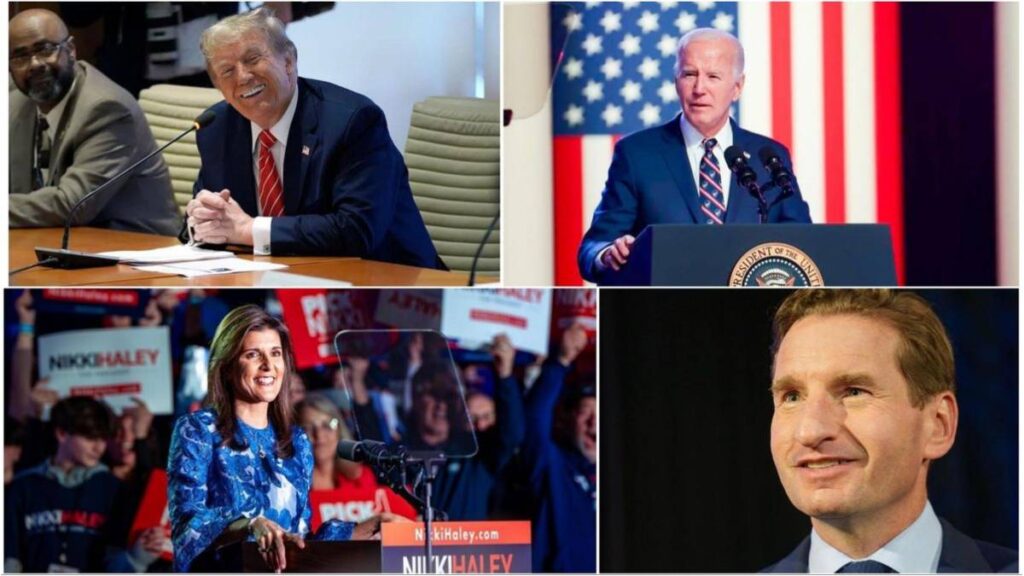
If you’re an ardent politics lover, it’s easy to notice that New Hampshire is always the first state to conduct a presidential primary in the USA. But you may not know that the Granite State’s first-in-the-nation primary status has been legally binding for over a century.
Per a 1975 state law, “The presidential primary election shall be held on the second Tuesday in March or on a date selected by the secretary of state which is 7 days or more immediately preceding the date on which any other state shall hold a similar election, whichever is earlier, of each year when a president of the United States is to be elected or the year previous.”
New Hampshire voters don’t take this provision of the law lightly. This is especially true as being the first-in-the-nation primary state has advantages like increased out-of-state cash and media attention.
We’ll gladly indulge you if you want to know more about the state’s presidential primary. Let’s begin with who can vote in the New Hampshire primaries.
ALSO READ: Will Trump Be Criminally Convicted Before the General Elections?
The Democrats and Republicans hold their own primaries where registered voters (party affiliates) choose their preferred candidates. Since the state has closed primaries, Democrats can’t vote in Republican primaries and vice-versa. However, independent voters can participate in the primaries by requesting any of the two parties’ ballots.
Generally, New Hampshire’s primary results undergo thorough scrutiny because of the early attention it gets. On the Republican side, the state received 22 delegates, which is below 1% of the total number of delegates expected to vote at the convention.
The state will allocate delegates to candidates according to their performance in the primary. However, candidates who win less than 10% of the votes will not be eligible for delegates.
POLL—Should the Government Implement Stricter Penalties To Combat Retail Theft?
To this end, Trump gained 12 delegates (54.3% of the total delegates) for winning the state’s primary and receiving 176,392 votes. Nikki Haley, who is the first runner-up, gained 9 delegates to reflect her 140,288 votes. The remaining candidates, including Ron DeSantis, Chris Christie, Vivek Ramaswamy, and Mike Pence, received no delegate because they didn’t meet the 10% threshold.
For the Democrats, the Democratic National Party (DNC) gave the Granite State zero delegates this year. This is sort of New Hampshire’s punishment for refusing to change the date of the primaries to put South Carolina first, as the DNC wanted.
ALSO READ: “I Think It’s Politics,” Burgum Says About Trump’s Attacks on Haley
For this reason, President Biden declined to appear on the state’s ballot in protest and solidarity with the DNC. His voters had to write his name on their ballot papers. Despite this, Biden still won the New Hampshire primary as a write-up candidate, with Congressman Dean Phillips taking the second place.
It’s worthy of note that primaries haven’t always been a thing in the American political landscape. Many years ago, the primary voters elected delegates to represent the party at the National convention. It was only in 1952 that New Hampshire voters started voting their preferred presidential candidates directly. Meanwhile, based on information from the State Historical Society, New Hampshire started conducting its primaries before any other state in 1920.
You Might Also Like:
Biden Campaign Team Dismisses 3rd-Party Threats Ahead of 2024 Elections
Authorities Ramp Up Security at Megan Thee Stallion’s Mother’s Grave Amid Feud With Nicki Minaj
“I Think It’s Politics,” Burgum Says About Trump’s Attacks on Haley
Marjorie Taylor Greene Proposes That COVID-19 Vaccines Should Be Illegal To Fund
Officials Arrest Stalker Outside Taylor Swift’s Home for the Second Time in Three Days
